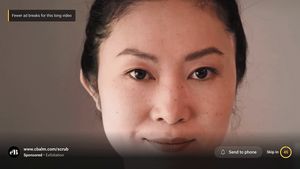JAKARTA - In terms of increasing the privacy of its users on the web, Google continues to invest in its security, one of which is by limiting third-party cookies in Chrome.
But now, Google announced that it will begin testing the Tracking Protection feature to limit third-party cookies by default on January 4.
"On January 4, we will begin testing Tracking Protection, a new feature that limits cross-site tracking by limiting access to websites to third-party cookies by default," wrote Anthony Chavez, VP, Privacy Sandbox in a Google blog quoted Friday, December 15.
Assuming everything goes well, Google will gradually increase its rollout to 100 percent of Chrome users in the second half of 2024.
"We will launch this to one percent of Chrome users globally, which is an important milestone in our Privacy Sandbox initiative to gradually abolish third-party cookies for everyone in the second half of 2024," he added.
Third-party Cookies have become a fundamental part of the web. While it can be used to track website activity, the site also uses it to support various online experiences, such as helping you enter or displaying ads relevant to you.
SEE ALSO:
"With Privacy Sandbox, we are taking a responsible approach to gradually deleting third-party cookies in Chrome," said Chavez.
With the Tracking Protection feature, you will be notified when opening Chrome on desktop or Android. So, when you explore the web, third-party cookies will be limited by default, thus limiting your ability to track you on various websites.
"With the Protection of Tracking, Privacy Sandbox, and all the features we launch on Chrome, we will continue to strive to create a more personal web than ever before, and be universally accessible to everyone," the announcement concluded.
The English, Chinese, Japanese, Arabic, and French versions are automatically generated by the AI. So there may still be inaccuracies in translating, please always see Indonesian as our main language. (system supported by DigitalSiber.id)















